Indigenous Governance Database
Civics
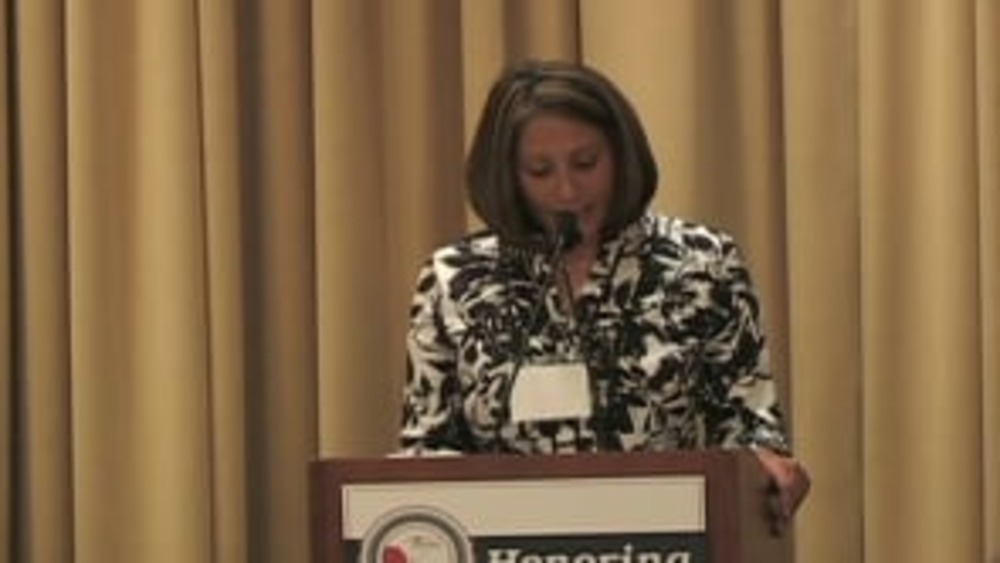
Honoring Nations: Joyce Wells: Project Falvmmichi
Choctaw Nation Healthy Lifestyles Program Director Joyce Wells describes how a 16-year-old Choctaw citizen transformed her idea and passion into a comprehensive education and mentoring program that seeks to prevent domestic violence in Choctaw communities.
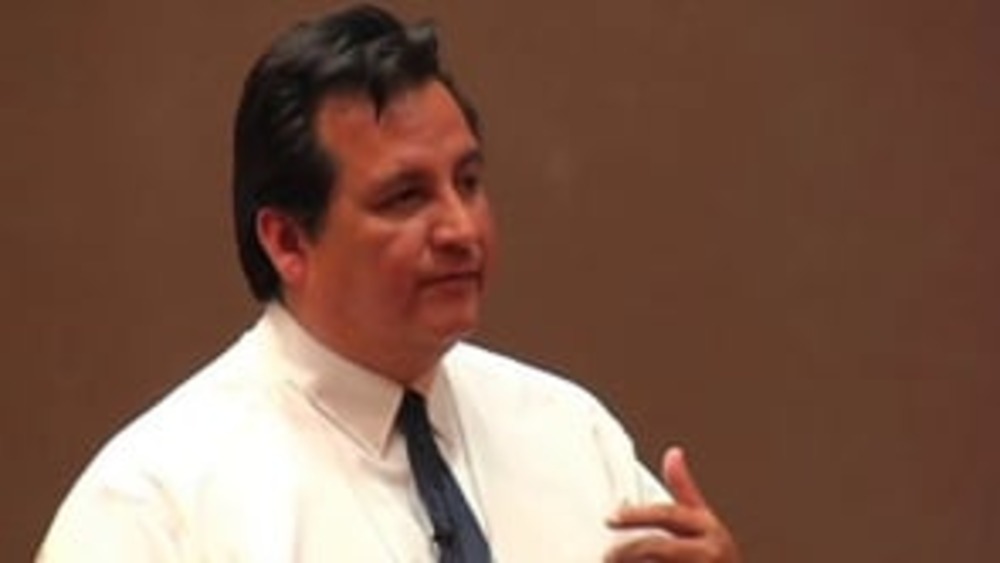
James R. Gray: Government Reform: Mobilizing Citizen Participation
Former Osage Nation Principal Chief Jim Gray explains the significant citizen-engagement hurdle the Osage Nation had to overcome in creating a new constitution and governance system, and how its ability to cultivate citizen participation and ownership in the development of Osage's new government…
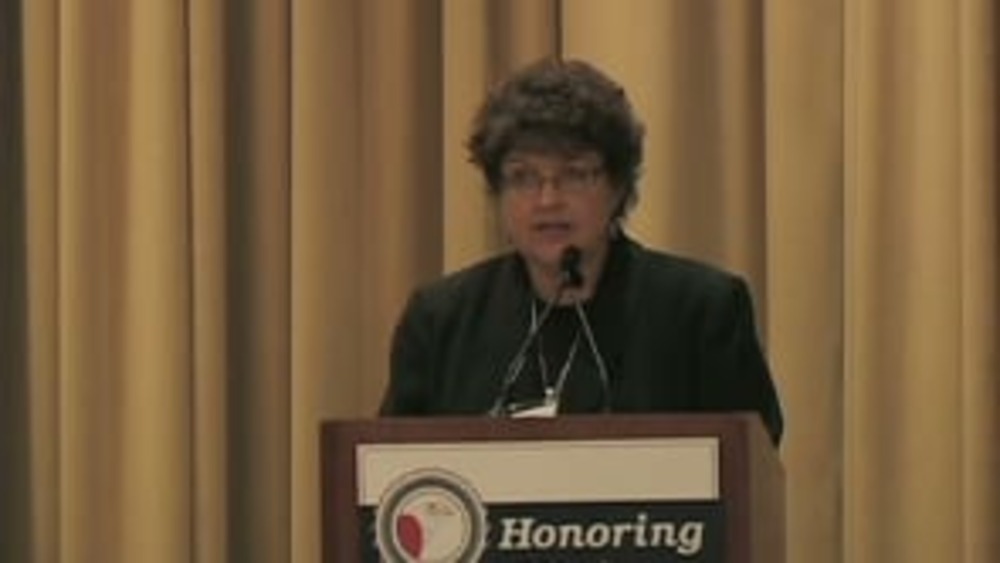
Honoring Nations: Jeannie Barbour: Chickasaw Press
Jeannie Barbour, creative director for the Chickasaw Nation, shares the history and success of the Chickasaw Press and discusses how it serves as a concrete expression of Chickasaw self-governance.
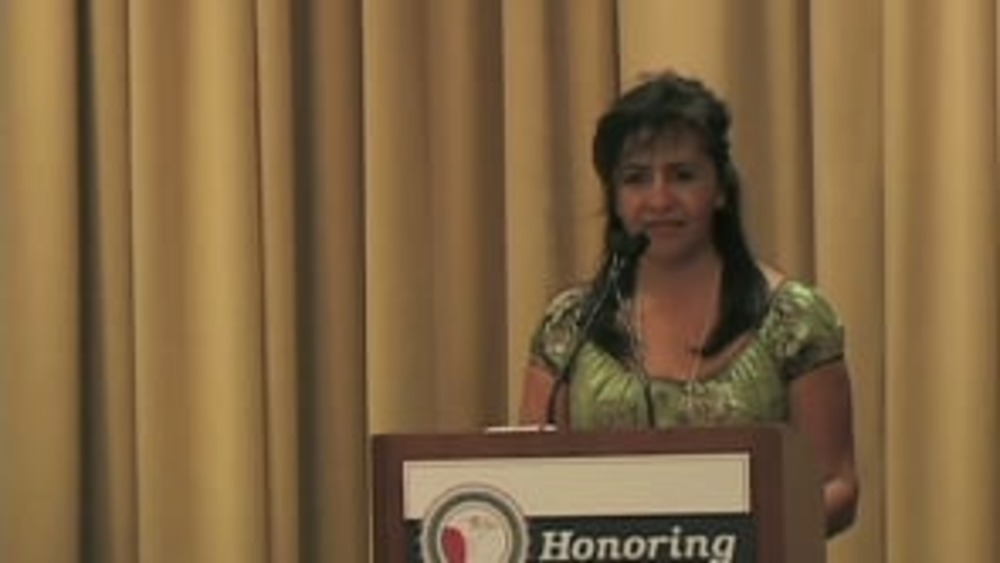
Honoring Nations: Tomasita Duran: Tsigo bugeh Village
Ohkay Owingeh Housing Authority Executive Director Tomasita Duran explains the process by which Ohkay Owingeh Pueblo established Tsigo bugeh Village and molded it to fit the culture and society of the Pueblo.
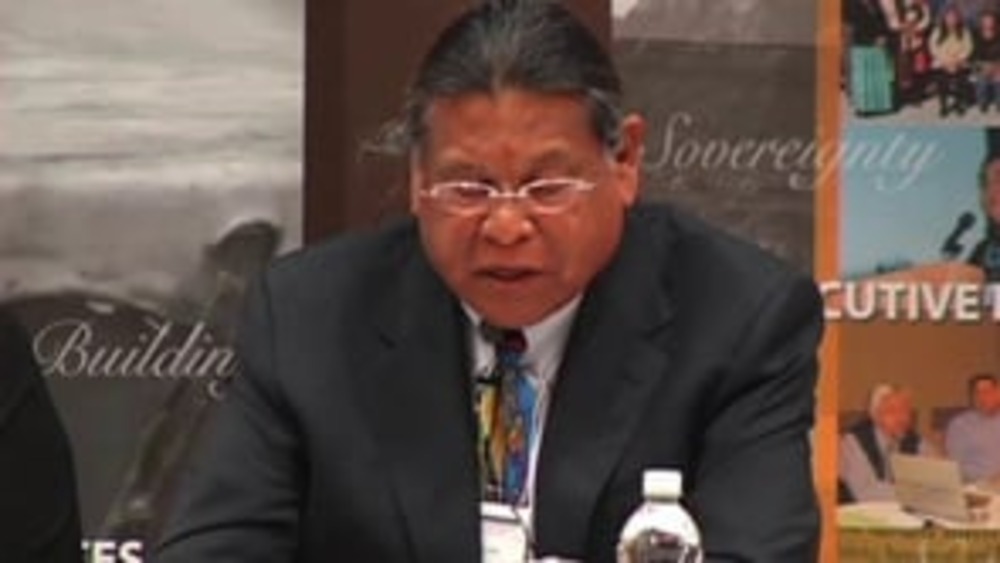
Anthony Pico: What I Wish I Knew Before I Took Office
Viejas Band of Kumeyaay Indians Chairman Anthony Pico reflects on his experiences as leader of his nation, and stresses the importance of Native nations strengthening their systems of governance in order to protect and strengthen their cultures and ways of life.
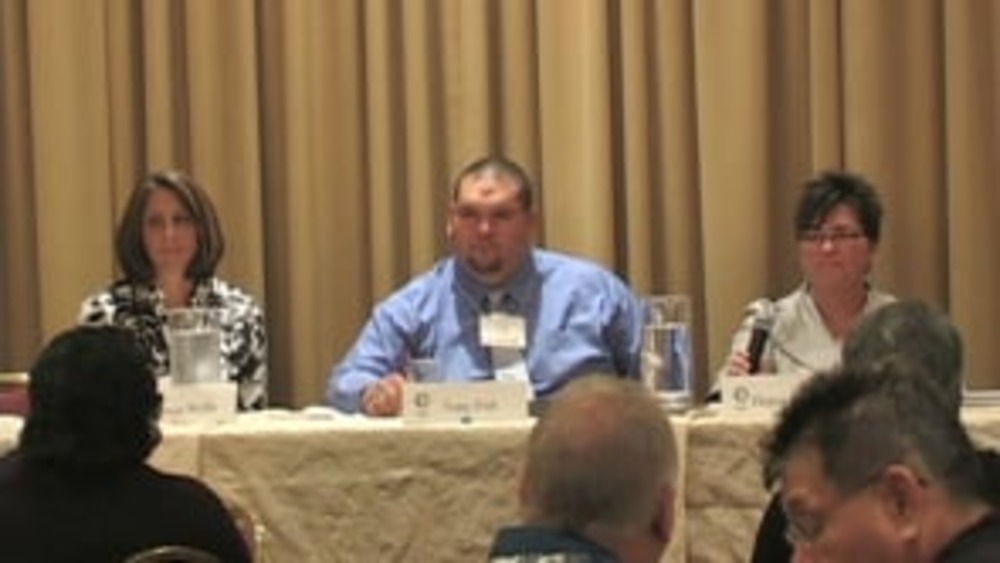
Honoring Nations: Hepsi Barnett, Tony Fish and Joyce Wells: Reclaiming Native Nations (Q&A)
Native leaders Hepsi Barnett, Tony Fish, and Joyce Wells share a deeper level of detail about the roots and impacts of their nations' Honoring Nations award-winning programs.
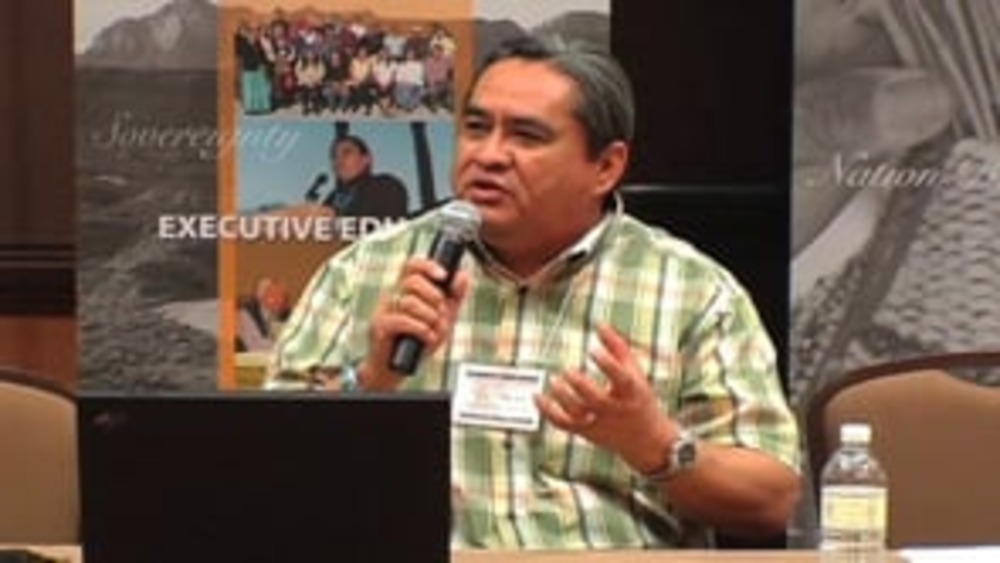
Peterson Zah and Manley A. Begay, Jr.: Strategic Thinking and Planning: Navajo Nation Permanent Trust Fund (Q&A)
Manley Begay and Peterson Zah field questions from the audience concerning the Navajo Nation Permanent Trust Fund and how they and others worked to mobilize and sustain the citizen support necessary to keep the fund intact and allow it to grow.
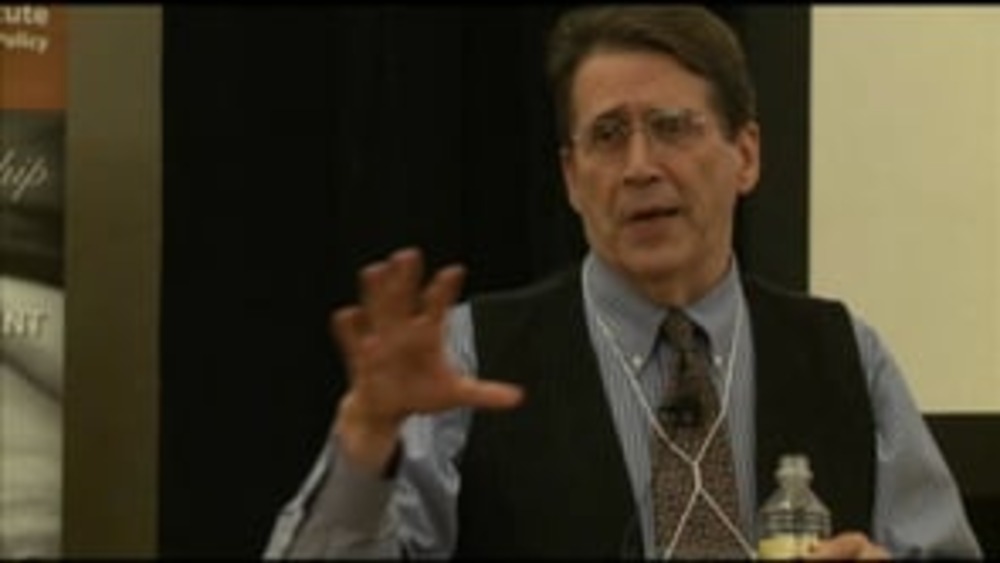
Frank Pommersheim: A Key Constitutional Issue: Dispute Resolution (Q&A)
University of South Dakota Professor of Law Frank Pommersheim fields audience questions about the importance of civic engagement to constitutional reform, removing the Secretary of Interior Approval clause from tribal constitutions, and other important topics.
Taylor Keen: The Disenfranchisement of the Cherokee Freedmen: Assertion or Abuse of Sovereignty?
Taylor Keen (Cherokee), a former member of the Cherokee Nation Council, discusses the stand he took against his nation's recent decision to disenfranchise the Cherokee Freedman. He offers a convincing argument against the move, explaining that taking away the citizenship rights of the Freedmen…
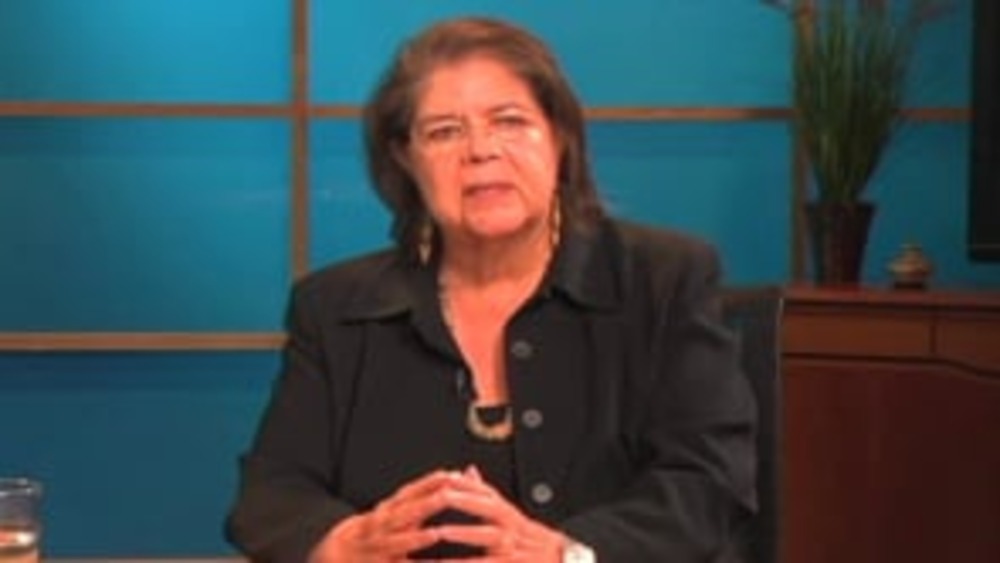
Wilma Mankiller: Governance, Leadership and the Cherokee Nation
As part of its ongoing interview series "Leading Native Nations," the Native Nations Institute (NNI) interviewed Wilma Mankiller, the late and former Chief of the Cherokee Nation, in September 2008. In the interview, she discussed her compelling personal story as well as the challenges the Cherokee…
Regis Pecos: The Why of Making and Remaking Governing Systems
Former Cochiti Pueblo Governor Regis Pecos shares his thoughts about the ultimate purpose of constitutions, governments and governance from a Pueblo perspective, and argues that constitutional reform presents Native nations with a precious opportunity to reclaim and reinvigorate their cultures and…
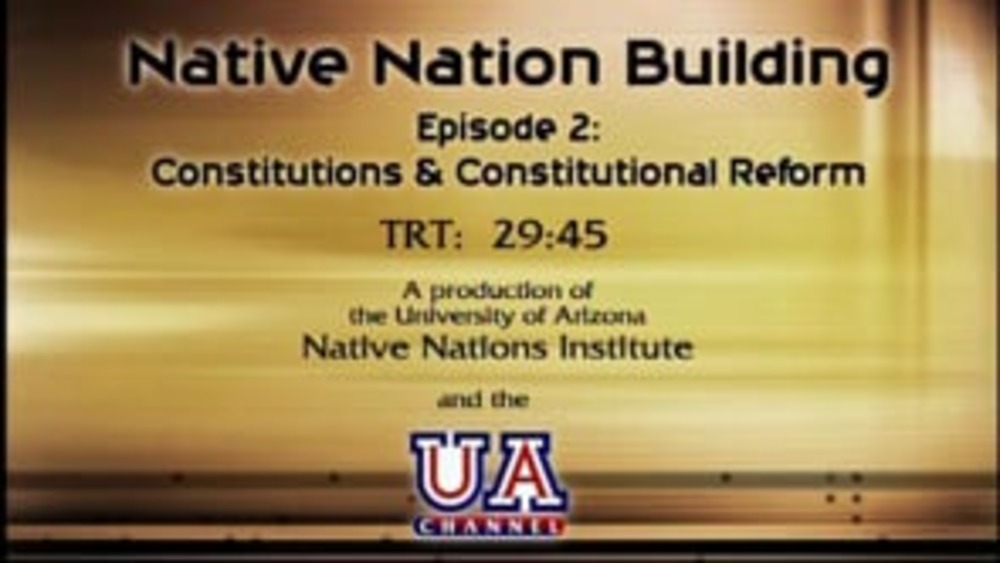
Native Nation Building TV: "Constitutions and Constitutional Reform"
Guests Joseph P. Kalt and Sophie Pierre explore the evidence that strong Native nations require strong foundations, which necessarily require the development of effective, internally created constitutions (whether written or unwritten). It examines the impacts a constitution has on the people it…
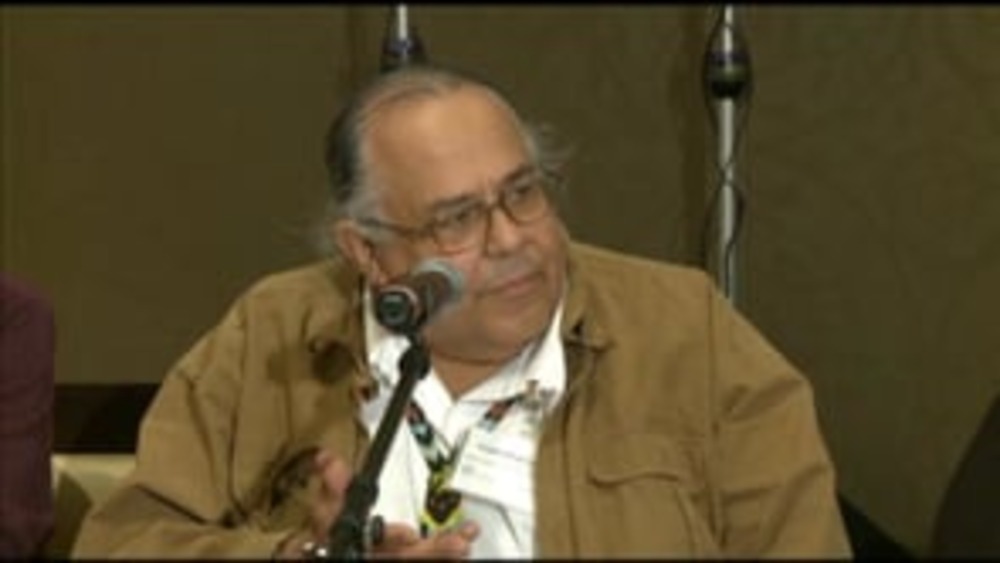
Constitutional Reform: A Wrap-Up Discussion (Q&A)
NNI "Tribal Constitutions" seminar presenters, panelists and participants Robert Breaker, Julia Coates, Frank Ettawageshik, Miriam Jorgensen, Gwen Phillips, Ian Record, Melissa L. Tatum and Joan Timeche field questions from the audience about separations of powers, citizenship, blood quantum and…
Joan Timeche and Joseph P. Kalt: The Process of Constitutional Reform: Key Issues and Cases to Consider
Joan Timeche and Joseph P. Kalt share two stories of constitutional reform processes undertaken by Native nations and discuss what factors spurred or impeded the ultimate success of those efforts.
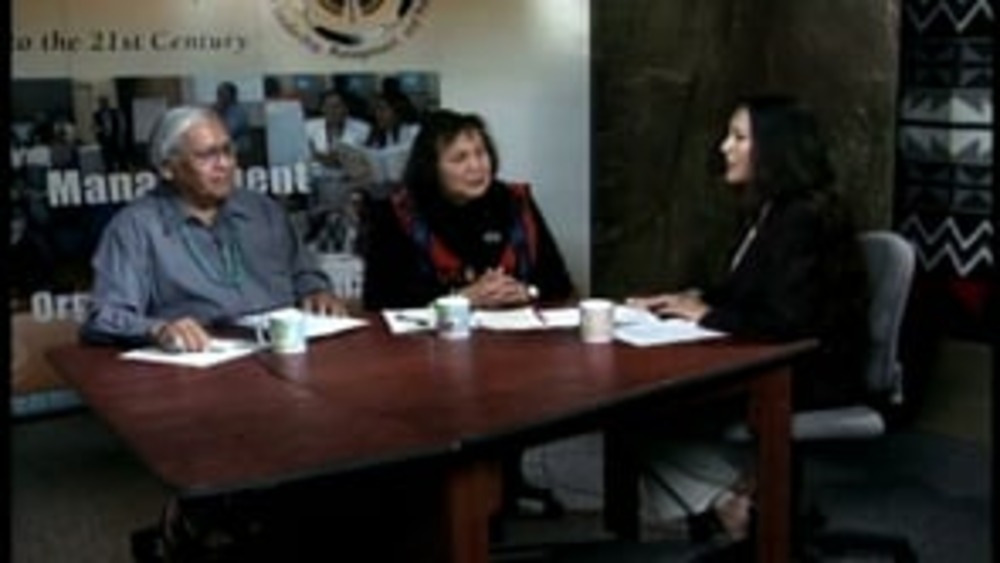
Native Nation Building TV: "Leadership and Strategic Thinking"
Guests Peterson Zah and Angela Russell tie together the themes discussed in the previous segments into a conversation about how Native nations and their leaders move themselves and their peoples towards nation building. They address the question all Native nations have: How do we get where we want…
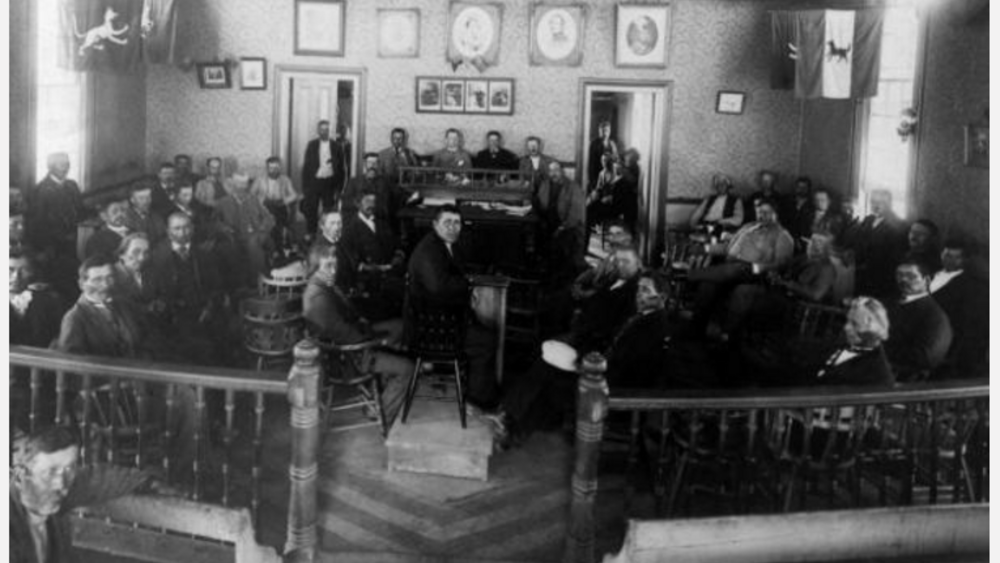
Political Autonomy and Sustainable Economy
A unique attribute of Indian political ways was noted early on by colonial observers. Indians, Indigenous Peoples more generally, were engaged in everyday political action as full participating community members. Every person had the right to be heard. Decisions were made through discussion and…
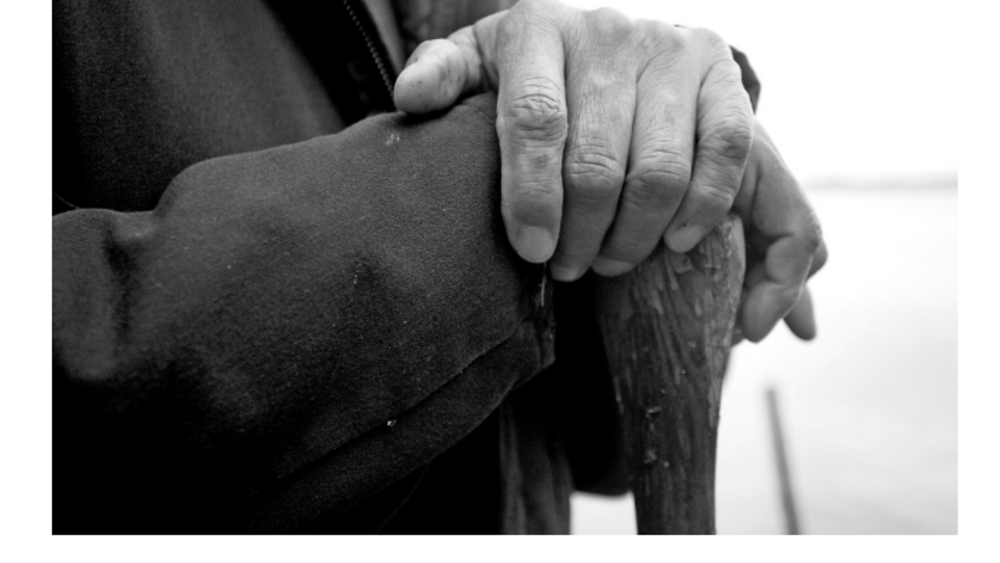
'We are getting stronger'
An economic, political and cultural renaissance is underway throughout Indian Country in the United States. It’s been going on for nearly a quarter-century. Whereas in the 1980s, economic growth on Indian reservations lagged far behind the rate of the U.S. economy, through the booming 1990s and the…
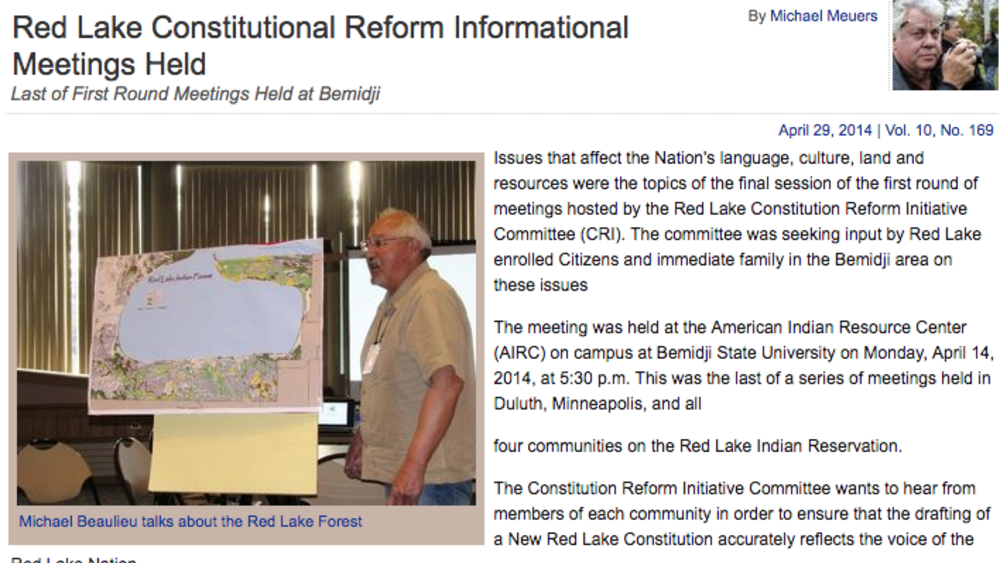
Red Lake Constitutional Reform Informational Meetings Held
Issues that affect the Nation's language, culture, land and resources were the topics of the final session of the first round of meetings hosted by the Red Lake Constitution Reform Initiative Committee (CRI). The committee was seeking input by Red Lake enrolled Citizens and immediate family in the…
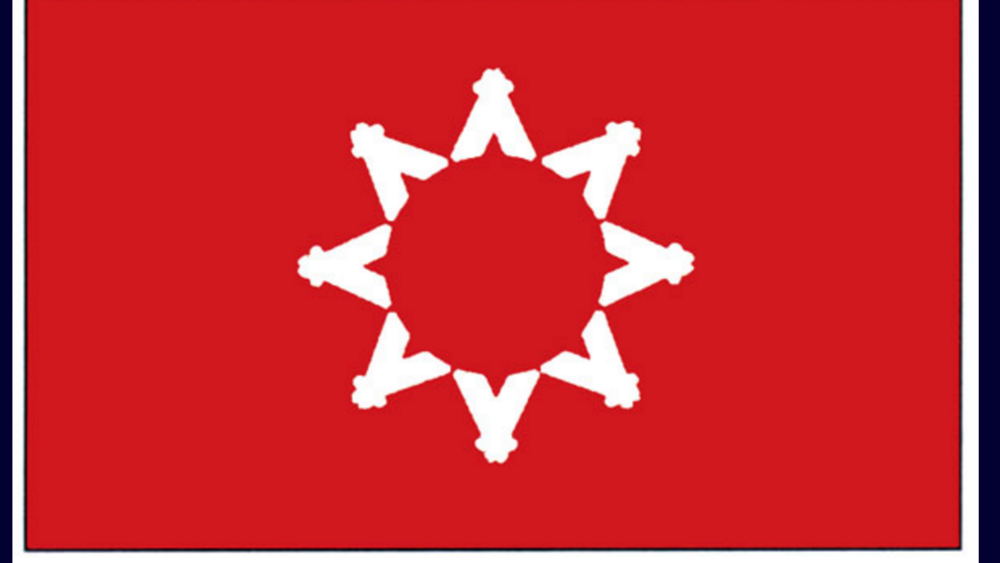
Teach youth about forms of government
Why aren’t the schools teaching about the IRA form of government? Why aren’t they teaching about the traditional tiospaye form of government? The disenchantment and what appears to be apathy or even seditiousness toward the Indian Reorganization Act system of government have become “normal” among…
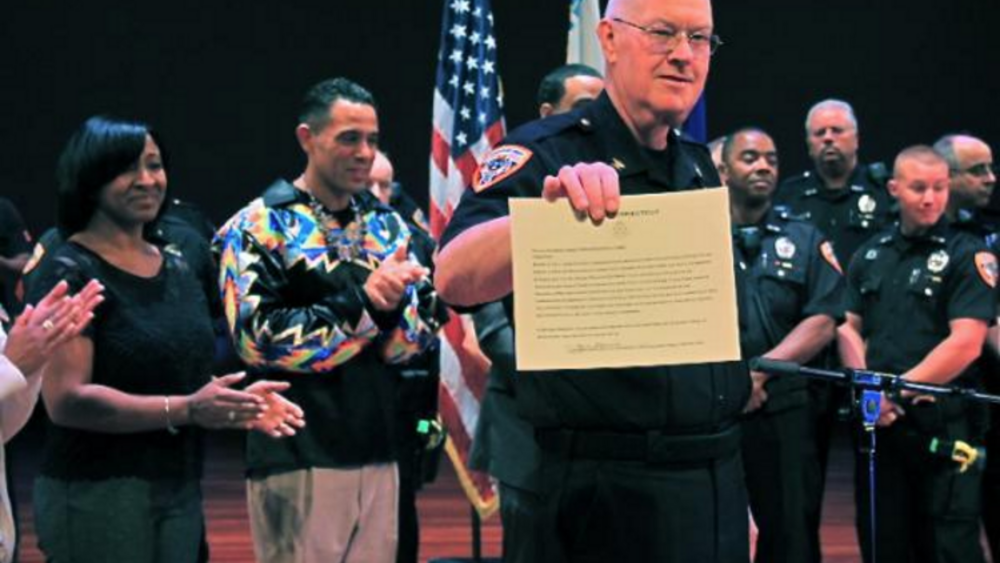
Police Protection in CT Increases: Tribes Can Now Arrest Non-Natives
On Friday, August 1, 27 members of the Mashantucket Pequot Tribal Police received the power to arrest non-Natives on tribal land. “Up until now they could only hold and detain non-tribal members until the state police could come and make the arrest,” William Satti, director of public affairs for…
Pagination
- First page
- …
- 4
- 5
- 6
- …
- Last page
